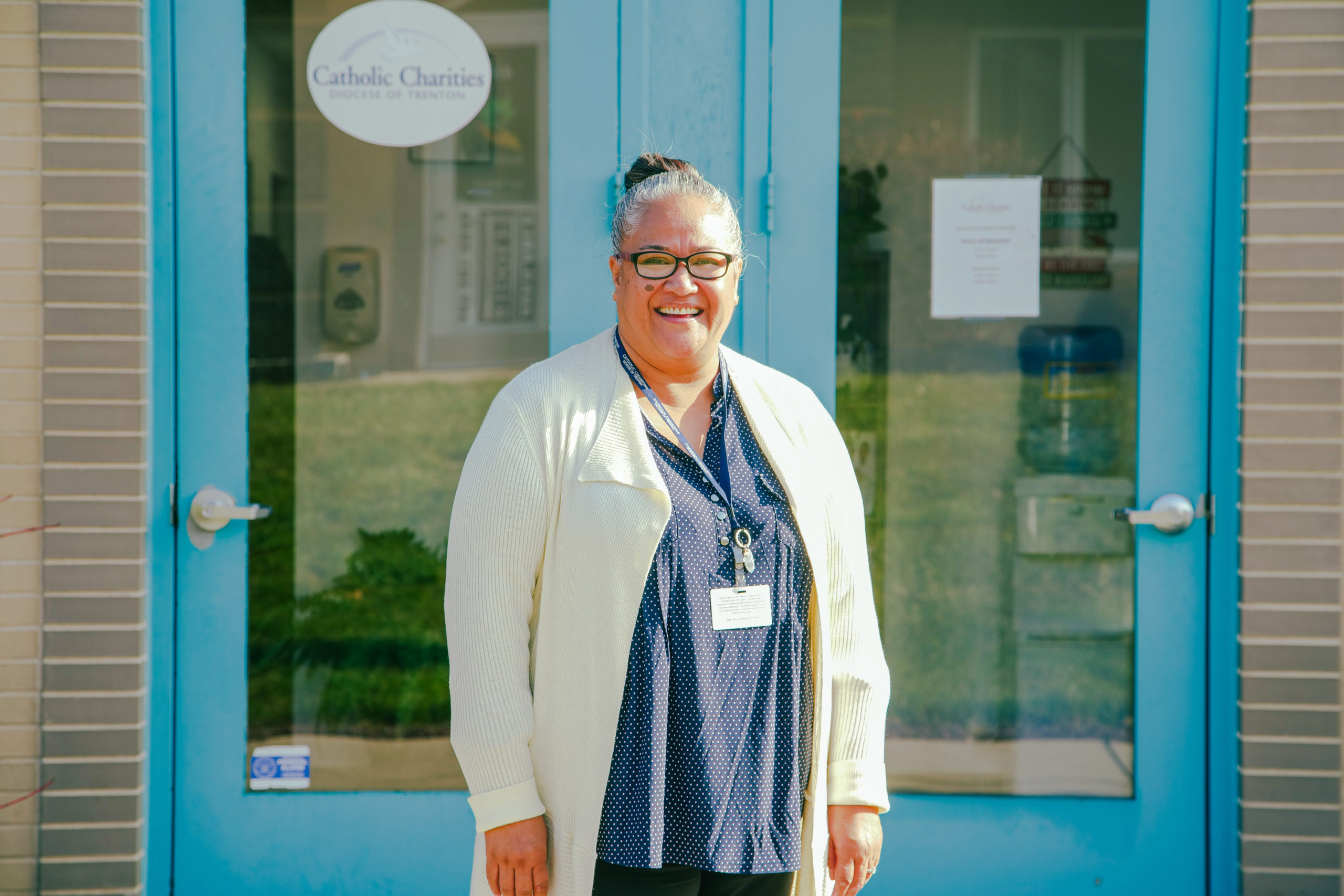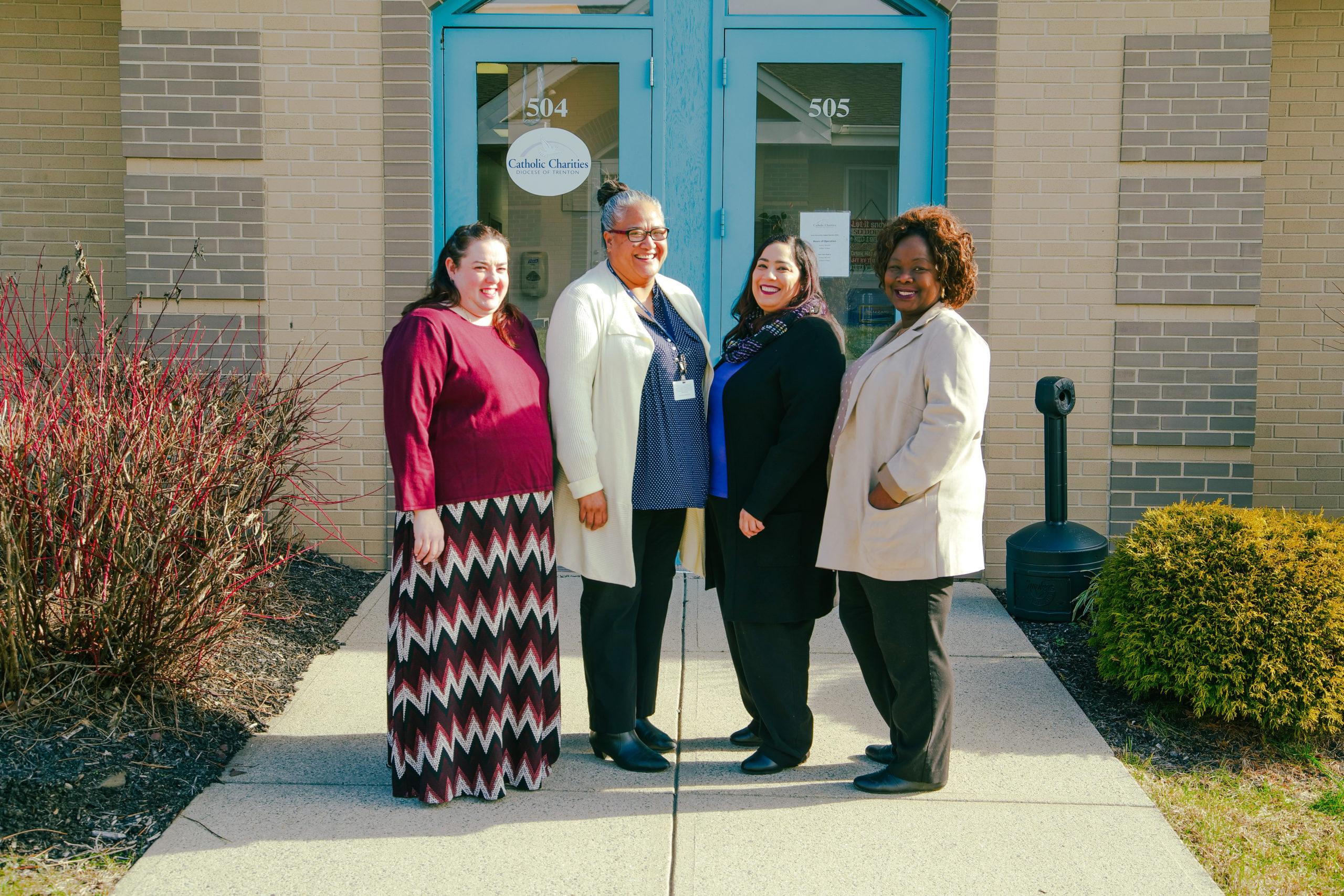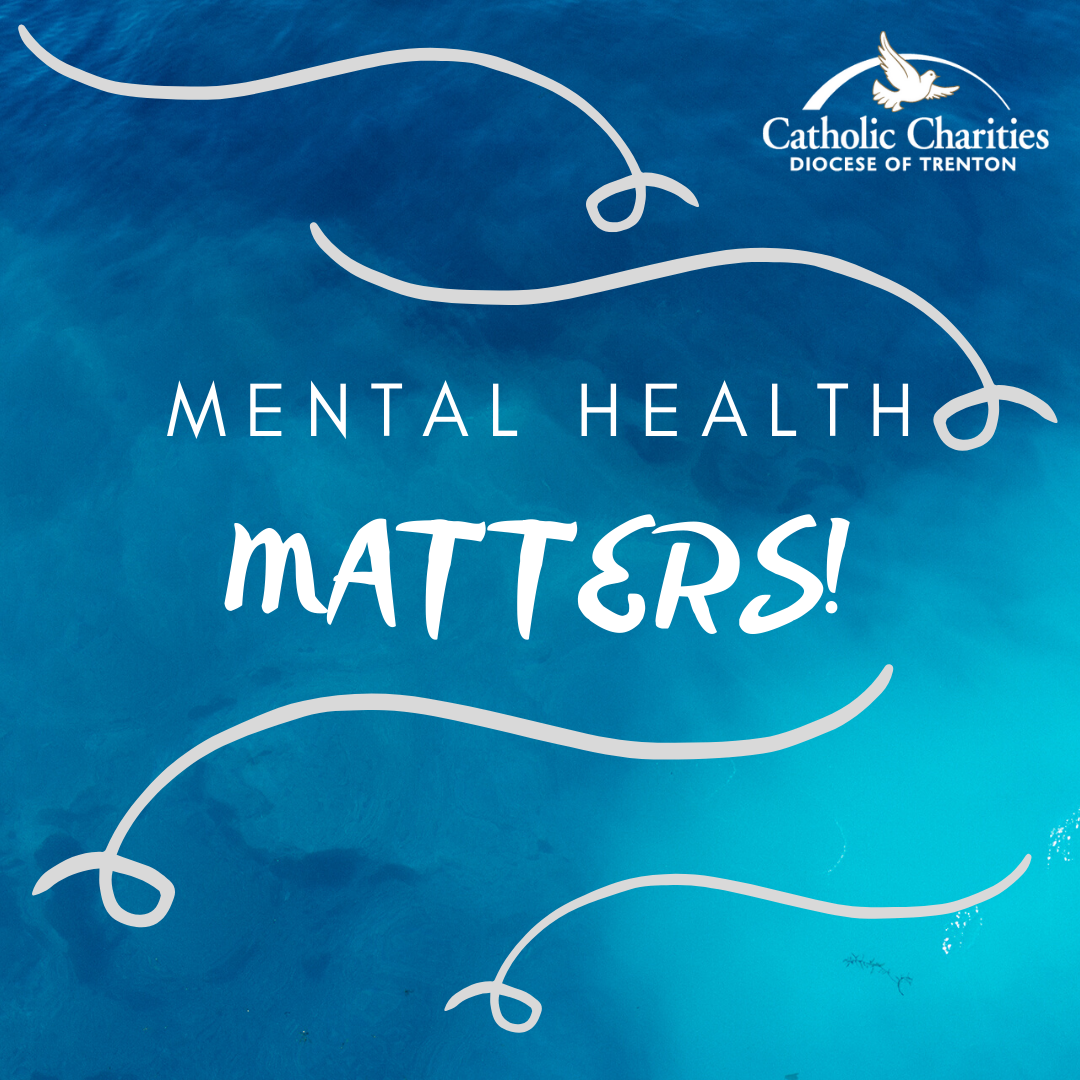Providing immediate relief at the “urgent care of mental health”
 Moving around the world can be stressful. Moving around the world with a husband whose health begins failing to a place where you know no one else?
Moving around the world can be stressful. Moving around the world with a husband whose health begins failing to a place where you know no one else?
“Reeeeeeally stressful,” said Rose Ashley (pictured, left), who found herself in exactly that situation in 2017.
So when Rose saw a highway billboard advertising mental health services at Catholic Charities, Diocese of Trenton, she didn’t hesitate to pick up the phone. She connected with Catholic Charities’ Early Intervention Support Services (EISS), a short-term stabilization program in Mercer County for people in emotional distress or psychiatric crisis.
The program is “like the urgent care of mental health,” said Danica Rivello, director of outpatient and crisis services. “We’re really catching people when they’re asking for help, rather than when the agencies can provide the help, because a lot of times there are waitlists and barriers to treatment. With this treatment modality, they’re able to access treatment immediately and when they’re ready.”
Now a peer mentor
At EISS, Rose met with a counselor for a month, following that up with two additional months of counseling through Catholic Charities’ Guidance Clinic in Trenton.
“It really did help me,” she said. “I was able to offload and really talk about the stresses happening to me. I learned about boundaries and self-care strategies I could do to keep myself sane. Shifting focus to my strengths really helped too. I felt relieved and really good about myself – I felt like I was gaining my strength back as an individual.”
Rose felt so confident in the services provided by EISS that she applied to work there. (She’s pictured, right, with her EISS coworkers.) Now, she’s a mental health peer advocate and case manager, helping overwhelmed new clients feel at ease as they begin treatment.
“Clients come in very reserved. I share a little bit about what happened to me, and I can see their whole body relax,” said Rose, who worked in mental health for 20 years in New Zealand, her native country, before moving to the U.S. “On a personal level, I want them to know that it doesn’t matter where you come from, what ethnicity or socio-economic status you are: Mental health affects everybody across the board.”
 Breaking down barriers
Breaking down barriers
Besides rapid-access to treatment, the EISS model also works well because it removes barriers to recovery, Rose said. For example, the program has bilingual staff and offers free transportation to and from its Hamilton offices for anyone who needs it.
“It made such a huge difference for us when they said: ‘we can pick you up and drop you back home,’” Rose said. “It really reduced some stress, so that my husband and I could focus on his health.”
There’s also always food on hand for clients, from snacks to microwaveable dinners, because staffers know that hunger can be distracting and impede recovery. Plus, food represents comfort, Rose said.
“Food is universal. It shows: ‘Hey, we care, and we know you’re going through something,’” Rose said. “We’ve had clients who come here who have it so bad, and we learn in intake they haven’t eaten in a few days. Little things like snacks can make a huge difference in someone’s recovery and make them feel cared-for.”
EISS is a busy program, with 75 to 100 walk-ins a month, Rivello said. Only 10 other New Jersey counties have EISS services.
“I’m actually blown away by this program,” said Rose, who plans to return to school soon to finish her degree. “I’ve seen firsthand the good work this program does, and I feel blessed to now work here and help people.”
For more information about EISS services in Burlington County call (609) 386-7331. For information on EISS in Mercer County, call (609) 256-4200. This story appeared in our spring 2020 Spirit newsletter. Read the whole newsletter here.
Subscribe for more news
To subscribe to our blog posts and news releases, fill out the fields below.